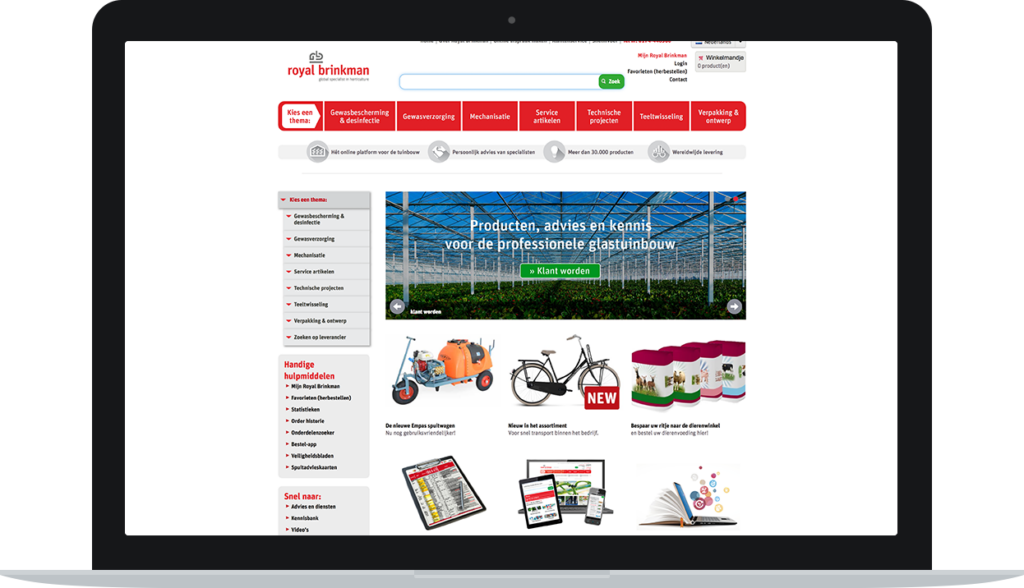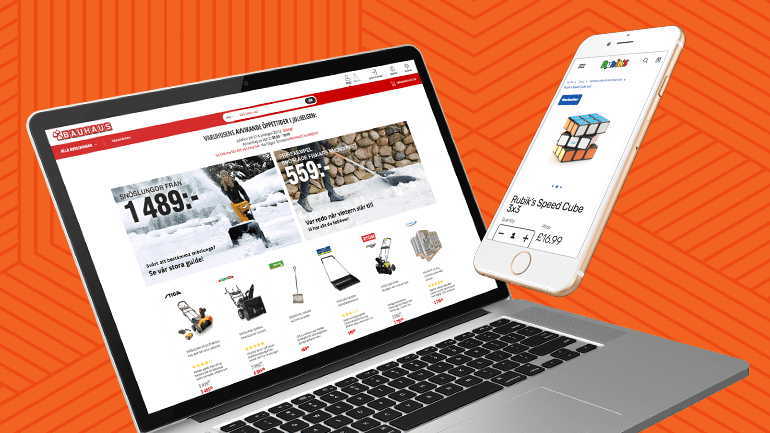10 years back, creating an eCommerce channel for B2B companies required millions of dollars in investment and months of custom software development.
However, thanks to explosive growth in B2B eCommerce in recent years and acceleration of digitization in B2B, creating an eCommerce channel today means hunting for the right B2B eCommerce platform and getting up and running with out-of-the-box features that are built especially for B2B eCommerce.
But there is a catch. There are so many eCommerce platforms out there with similar looking features that it becomes difficult to spot the difference between them and pick the right one for your eCommerce project.
And we don’t blame you. I bet even software developers and creators of those SaaS platforms struggle while trying to differentiate their own product from the crowd.
So, how do you pick the right B2B eCommerce platform? Here are some factors you need to consider when making that crucial decision.
The Essential B2B eCommerce Features You Need
Before you even start looking for a platform, you need to sit down with your team, go through your buying and selling processes in detail, and compile a list of feature requirements.
You need to have that list ready before you start looking for B2B eCommerce platforms so that you can cross check against them and make sure you get the features you require.
To compile that list, it’s important to think through all your processes and buyer’s needs and think about how they could be digitized.
What solutions would you need to meet those unique needs of buyers and accommodate those buying and selling processes?
For example, if you have customers often placing repeat bulk orders, you need to think of a way to make this process easy on the eCommerce site.
You don’t want your eCommerce site to bring more friction for your buyers. Your goal should be to deliver a frictionless experience so it’s easier for buyers to order online – not harder.
What makes this process so complicated is the uniqueness of each B2B company. Your business is totally different from your neighbors.
That’s the reason you’ll seldom find a comprehensive list of B2B eCommerce features. You need to do that exercise yourself and figure them out yourself for your own company. A feature that is indispensable for a business similar to yours might be totally useless for your own business.
As an added layer of complexity, that list of features you compile for your B2B eCommerce store keeps changing as you grow and get more customers onboard.
It’s because every new customer you acquire will bring his own set of needs and unique buying processes that you’ll need to accommodate. And so, that list of features will keep evolving as you grow.
That’s why it’s not only important that your eCommerce platform offers the features you need right now but it should also be flexible and extensible so you can easily add new features when you need them later.
Ease of Use

Creating an eCommerce site doesn’t mean you get the site up, shove it aside, and forget about it. To truly digitize your company and seize the trillion-dollar opportunity, everyone in your company needs to embrace the eCommerce channel and really use it.
However, to make the transition easy for your team members, the eCommerce platform should be intuitive, easy to use, and match your team’s abilities, tech knowledge, and expertise.
With that said, you’ll find two types of eCommerce platforms – on-premise technologies and SaaS solution providers.
On-premise technologies like Magento and WooCommerce are powerful and very flexible and give you complete control over your site. However, to use these platforms, you need a team of full-time developers and website managers to manage your eCommerce site and tighten its defenses and security.
SaaS solution providers like BigCommerce and Shopify Plus are usually advertised as hassle-free wholesale solutions. These software services manage your site’s infrastructure and security so you don’t need to have a website maintenance team working full-time.
However, when you pick these SaaS eCommerce solutions, you don’t get full control over your site and often lack the ability to extend its functionality. Though most SaaS eCommerce platforms have flexible APIs, you’ll still find yourself facing roadblocks when trying to add new features to your site.
Hence, the eCommerce platform you choose should match your team’s abilities and expertise. On-premise solutions offer more control and flexibility but be ready to embrace the hassles and cost of website management. On the other hand, SaaS providers are intuitive and hassle-free but might have their own limitations.
Realizing this dilemma, we created B2BWoo that offers the flexibility of WooCommerce B2B eCommerce stores, cutting-edge B2B eCommerce features, and the ease and convenience of SaaS eCommerce providers.
Yes, it’s a fully-managed WooCommerce solution for WordPress lovers who are in love with the simplicity of WordPress but are scared of the hassles of self-hosted platforms.
Flexibility and Extensibility

Like mentioned above, you’ll often need to add new features to your eCommerce site to accommodate changing needs of your buyers.
Your eCommerce site also needs to work together with other systems you have in place e.g., CRM, ERP, PIM, etc.
For this reason, the eCommerce platform you choose needs to be very flexible and extensible so you can easily add new features to your store and integrate with other systems easily.
Make sure the eCommerce platform offers flexible APIs, strong documentation, and a big community of developers.
When it comes to flexibility and extensibility, nothing can compare to open-source technologies like WooCommerce and Magento.
When using these platforms, you get complete control over your site as you get access to the source code and you can directly make changes to the code, molding your site in whatever shape you like.
Built on WooCommerce and WordPress, the biggest differentiator of B2BWoo is its flexibility and extensibility.
Cost of the B2B eCommerce Platform
Cost is obviously an important factor to consider. You wouldn’t want to push your company to bankruptcy trying to create your eCommerce channel.
However, it’s not that simple to calculate the cost of your eCommerce channel. The total cost of your eCommerce site depends on a range of factors including:
- The cost of buying a subscription plan of the eCommerce platform
- The cost of custom development
- The cost of using and maintaining the site
Calculate the cost taking all these factors into consideration and then make your decision about which B2B eCommerce platform to choose.
Wrapping it Up
With so many eCommerce platforms saturating the market, it isn’t easy to pick one that is perfect for your business. With all the above factors considered, you’ll find it easier to land the perfect eCommerce platform that matches your needs.
Read Also
- Five Most Common B2B Ecommerce Mistakes Owners Make When Starting Out
- What Will Ecommerce Look Like in 2021
- 10 B2B eCommerce Advantages To Capture Before Your Competition
- 6 Biggest Content Marketing Trends That Will Dominate 2021
- Wholesale Distribution Trends For 2021
- Vendor-Based vs Custom eCommerce Solutions: Which One Is Your Right Choice?
- How to Start a B2B Ecommerce Store in 2021?
